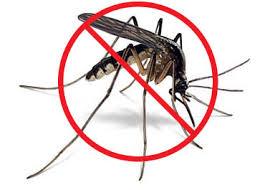
Analysis of available evidence on the insecticide finds no cause for concern
By Alan Mozes
HealthDay Reporter
MONDAY, Oct. 10, 2016 (HealthDay News) -- DEET insect repellents won't harm a pregnant woman or her fetus when used as instructed to prevent infection with the Zika virus, a new research analysis suggests.
Exposure to the mosquito-transmitted virus during pregnancy can cause devastating birth defects, including microcephaly, which results in abnormally small heads and brains.
Because of this, recommendations to mothers-to-be include protecting themselves from mosquito bites by using products containing DEET in areas where Zika is circulating.
But some women worry that the repellents themselves might pose a toxic threat to an unborn child. Not so, say the authors of the new research review.
"Given what we know about both Zika and DEET, the evidence overwhelmingly favors use of DEET-containing products," said Dr. Blair Wylie, an associate professor at Harvard Medical School's division of maternal-fetal medicine.
Her team noted that a 1998 Environmental Protection Agency review determined that DEET posed no health risk to users. The EPA reaffirmed that finding in 2014.
"An infection during pregnancy with Zika can put babies at risk for death, birth defects including brain problems, poor growth, and hearing or eyesight loss," Wylie said. "Insect repellents are key to prevention."
Typically, that means repellents containing DEET (N,N-diethyl-meta-toluamide). The insecticide has been used since the 1950s and is available in more than 200 products.
These repellents are "considered safe with few side effects if used properly," added Wylie, lead author of the new study. It's published in the November issue of Obstetrics & Gynecology.
"Proper" use, Wylie added, means avoiding the eyes, mouth, cuts and irritated skin when applying to the face. Also, apply DEET after sunscreen (don't use combination products), wash your hands after application and don't apply it under clothing.
Another ob-gyn agreed with the study's conclusion that DEET is safe for pregnant women.
"The available data suggests that DEET is safe in pregnancy," said Dr. R. Phillips Heine, a professor of obstetrics and gynecology at Duke University Medical Center in Durham, N.C.
"There is little that is absorbed systemically, so the fetus will be exposed to very low amounts. I would recommend DEET, as well as other mosquito-avoidance measures," Heine said.
These measures generally include covering arms and legs, using window screens and avoiding geographic areas where Zika is prevalent.
DEET products are available in concentrations ranging from 5 percent to nearly 100 percent, Wylie said, adding she would never recommend using anything above 30 percent.
Why? "Because their effectiveness at repelling insects plateaus around there," she said. "The added concentration would not increase benefit."
This advice, Wylie added, applies to any user, male or female.
While the Zika epidemic is concentrated in South America and the Caribbean, 105 cases of "local transmission" have occurred in Florida. However, the vast majority of Zika infections in the United States have been linked to patient exposure during travel outside the mainland 48 states.
Some cases of Zika have been transmitted sexually.
Symptoms of Zika can last several weeks, and include a fever, rash, joint pain, red eyes (conjunctivitis), muscle pain and/or headaches.
But most healthy adults will experience only a mild reaction, or none at all.
More information
The U.S. Centers for Disease Control and Prevention has more on Zika and pregnancy.
This Q&A will tell you what you need to know about Zika.
To see the CDC list of sites where Zika virus is active and may pose a threat to pregnant women, click here.
SOURCES: Blair Wylie, M.D., M.P.H., associate professor, Harvard Medical School, division of maternal-fetal medicine, and department of obstetrics and gynecology, Massachusetts General Hospital, Boston; R. Phillips Heine, M.D., professor of obstetrics and gynecology, Duke University, Durham, N.C.; November 2016, Obstetrics & Gynecology
Last Updated: Oct 11, 2016
Copyright © 2016 HealthDay. All rights reserved.